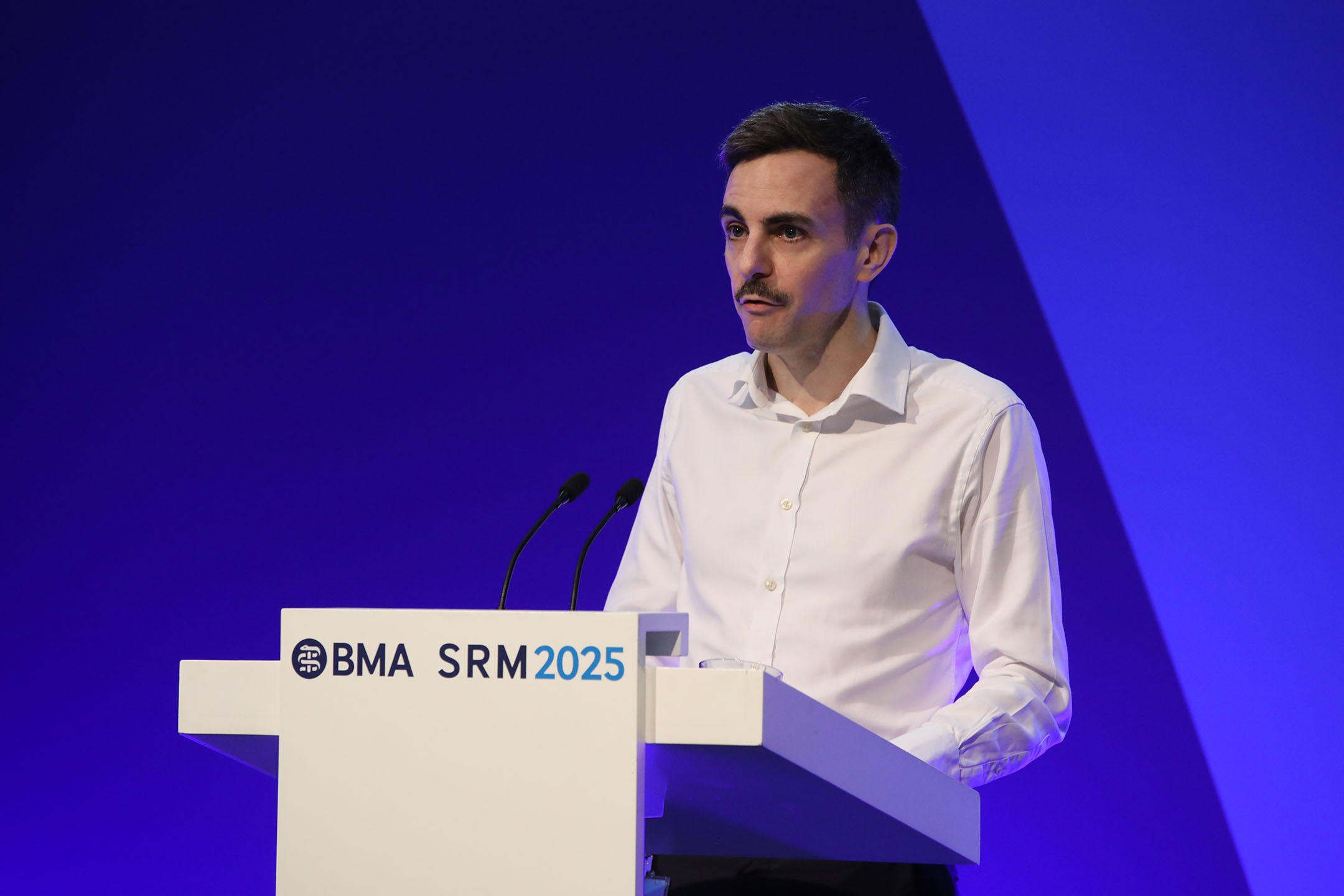‘Whilst our NHS is crumbling how can the Government possibly justify this ongoing doctor unemployment?’
For Callum Williams (pictured above), the rapid approach of the start of his medical career is a cause for concern rather than excitement.
As a final year medical student at the University of Glasgow, Mr Williams, like many of his contemporaries, is facing the cliff edge of a shortage of specialty training places, a situation which has led to the astonishing phenomenon of unemployed doctors amidst an NHS staffing crisis.
Through its 10-year plan for the NHS in England, the UK Government has committed to prioritising UK graduates and IMGs (international medical graduates) already working in the UK, and to creating an extra 1,000 specialty training places.
Job security
Speaking at the special representative meeting in London, on 14 September, however, Mr Williams warned that words needed to be backed by action, warning that delays and half-measures would not be enough to prevent a lost generation of doctors.
‘When I applied to medical school I remember being told that one of the key perks of medicine was job security,’ said Mr Williams, who is the deputy co-chair for education and training on the BMA medical students committee.
‘Unfortunately for me and many of my colleagues, this isn’t true anymore. Every day I speak to my colleagues, all of whom are right at the start of their medical careers. However, for most of them, they’re already planning their exit from the NHS.’
Calling on the Government to enact prioritisation in time for the UK Foundation Programme and specialty training 2026 round one recruitment cycles, members also backed demands for a pause in medical school expansion until extra training places had been created. Members also backed demands for a pause in further medical school expansion.
‘We welcome the commitment that the government has made at the NHS 10-year plan, but words are not enough we need action,’ Mr Williams told the SRM.
‘We know [an extra] 1,000 posts will not be enough. We need an urgent expansion both foundation and special training posts providing consultants and GPs for the future.
‘This must also be matched to medical school places. We cannot allow the government to continue this politically expedient policy of medical school expansion without the expansion of postgraduate training, as this will just worsen doctor unemployment.’
 DOLPHIN: Seeking reassurances
DOLPHIN: Seeking reassurances
The SRM saw BMA council chair Tom Dolphin directly question health secretary Wes Streeting over whether he could assure the ‘graduates of UK medical schools and established IMGs’ that they would be prioritised for training places in time for the 2025/26 recruitment cycle.
While insisting that the Government and BMA were ‘100 per cent in agreement’ over the issue of prioritisation, the secretary of state said he could not provide a guarantee, an admission that sparked disquiet among some SRM attendees.
‘We are 100 per cent agreed as the Government and BMA in terms of what it is we’re trying to achieve, in terms of prioritisation,’ Mr Streeting said.
‘What I’m working through in quite a lot of detail at the moment [are] the technical implementations and legal risks. I’ve got to make sure that whatever we do and whenever we do it, that we don't end up being subject to successful legal challenge.’
Overseas doctors
This year’s annual representative meeting saw the association pass policy calling for the prioritisation of UK medical school graduates for training places, with exemptions for IMGs who have experience in the NHS.
While understood as an attempt to address the issue of training place shortages, UK graduate prioritisation is a measure that is viewed by some members of the medical profession as misguided and unfair and ultimately discriminatory to IMGs wishing to work in an NHS crying out for staff.
Challenging yesterday’s motion, specialty registrar in gastroenterology and general internal medicine Abhishek Ray warned that prioritising one group of doctors over another risked undermining the enormous contributions made by overseas doctors.
‘IMGs are not just visitors to the NHS – they are its backbone,’ warned Dr Ray.
‘They pass the same exams, they meet the same standards, they treat the same patients. Their commitment is equal, their contribution is immense, and their potential is undeniable.
‘We cannot celebrate the NHS as a global workforce, while quietly gatekeeping its future. We cannot claim to value diversity while structurally disadvantaging those who bring it.’

